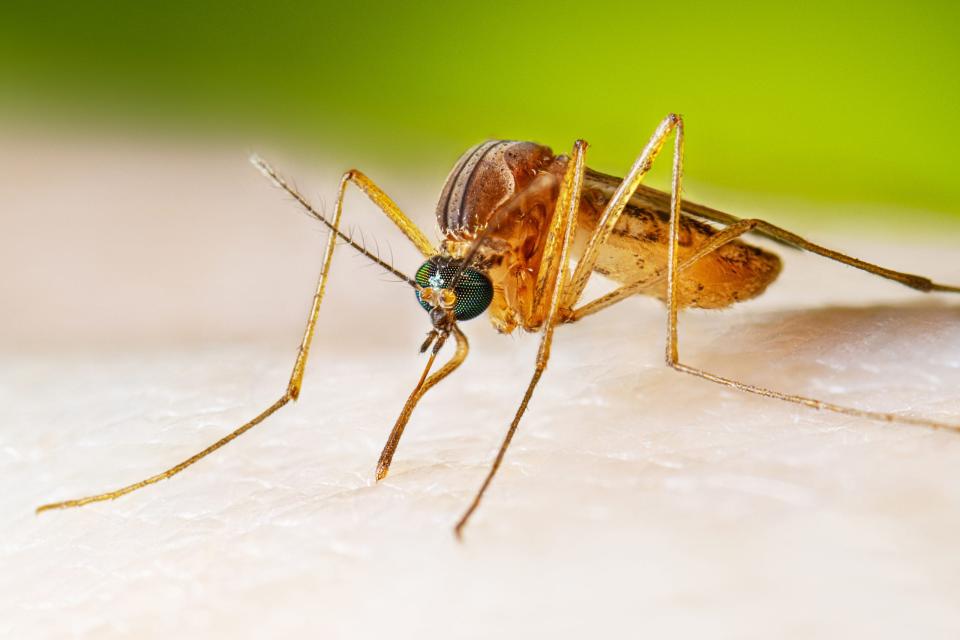West Nile virus detected in Sussex County mosquitoes. Here's what to do
FRANKFORD — The West Nile virus has been confirmed in mosquito samples taken from traps located in a half dozen locations in eastern Sussex County, according to county officials.
The presence of the virus which causes the disease was confirmed Friday and employees of the Mosquito Control Bureau worked over the weekend to spray and treat areas around the traps.
During the summer, the bureau sets up dozens of traps which attract mosquitoes. Bureau employees then test the samples at their laboratory in Frankford and also send samples to a state Department of Health laboratory for testing and confirmation.
County Administrator Ron Tappan said the mosquito trap sites with positive results were located in Hardyston, Sparta, Newton, Byram, Hopatcong and Stanhope.
West Nile disease occurs in bird populations and mosquitoes pick up the virus when they feed on an infected bird. The virus can then be transmitted to humans and other animals by the infected mosquito.
West Nile symptoms

In late July, the state Health Department reported the first human case of West Nile this year in a Camden County man. The U.S. Centers for Disease Control and Prevention reported that as of Aug. 15, there had been 190 West Nile cases in humans this year in 27 states.
The CDC calculates about one in five people who are infected will develop a fever and could have other symptoms such as headache, body aches, joint pain, vomiting, diarrhea or a rash.
West Nile can cause serious symptoms in a few people but most victims recover completely. However, the fatigue and weakness from the infection can last for weeks or months.
Of the six species of mosquitoes known to inhabit northern New Jersey, four can carry and transmit the West Nile virus, although it is most commonly carried by the Culex pipiens species, or northern house mosquito.
Related: Summer rains created 'perfect storm for mosquitoes' in NJ. Here's how to avoid the bites
Mosquito breeding sites all over your yard
Mosquitoes don't need a whole swamp in which to breed. According to experts, just an inch or so of standing water which lasts for a week — even in an upended bottle cap — is enough to become a mosquito incubator. And the eggs of some mosquito species can remain viable for months waiting to be hatched when covered by water.
That water can be found around a house in a variety of places, from leaf-filled rain gutters to a bunched tarp in a corner of the yard where water can puddle. Even the bottom of a flower pot is likely and toys left in the yard for a few days can also become a mosquito nursery.
Even a partially-filled watering can left on the deck for a few days can attract mosquitoes.
A well maintained swimming pool filled with clear, clean water is unlikely to breed mosquitoes, according to the DEP.
For items which can't be relocated inside, such as trash cans, drill a few holes in the bottom to prevent water from collecting and cover such items as kayaks or store them overturned if there are no edges or depressions where water can collect. Check under outdoor faucets for water collecting from a leak and empty, scrub and refill bird baths every couple of days.
Several other mosquito-borne diseases in NJ
West Nile is just one of several diseases known to be carried by mosquitoes in northern New Jersey. Among others are the Eastern Equine, Saint Louis and La Crosse forms of encephalitis as well as chikungunya, dengue and zika.
According to the CDC, there were 1,035 human cases of West Nile reported in 2022 with 298 being qualified as neuroinvasive disease, with a reported 79 deaths.
The Sussex County trap sites are throughout the county, including volunteer backyards and areas near swamps and other bodies of water.
In addition to late afternoon spraying from selected streets and highways, the county also pays for aerial spraying by a contractor. Employees of the Office of Mosquito Control also go in the field and treat breeding areas throughout the season.
This article originally appeared on New Jersey Herald: West Nile virus found in Sussex County NJ mosquitoes

